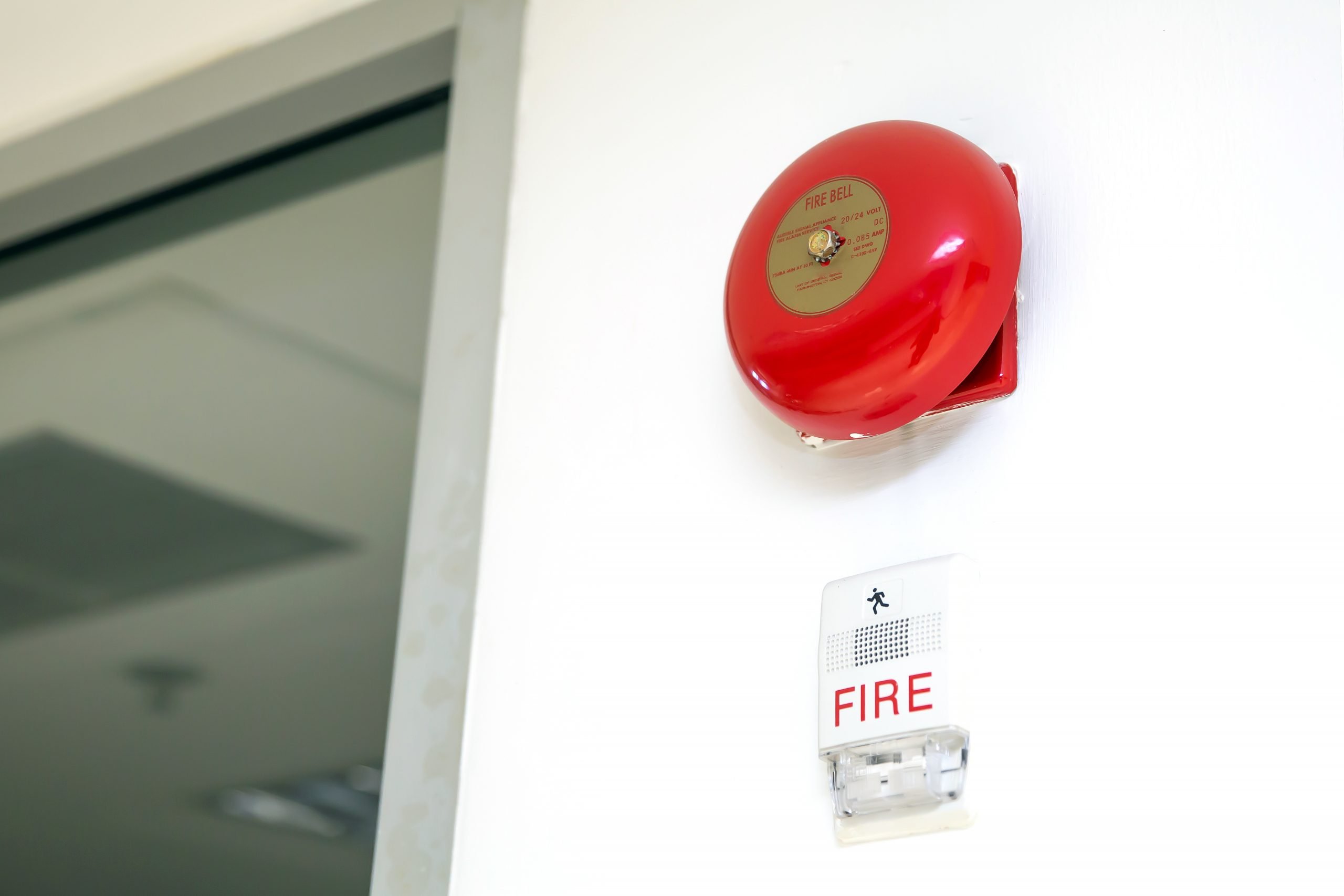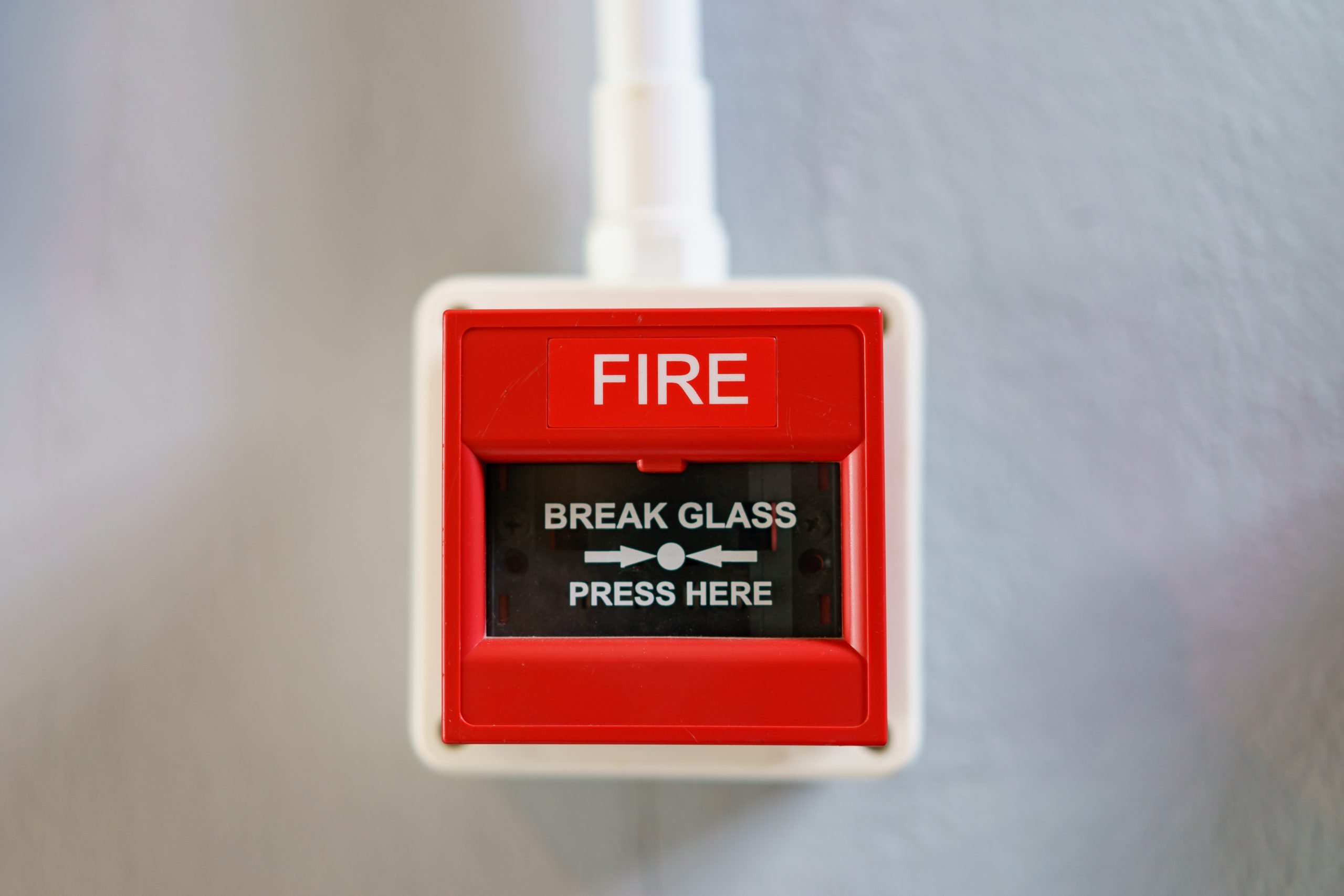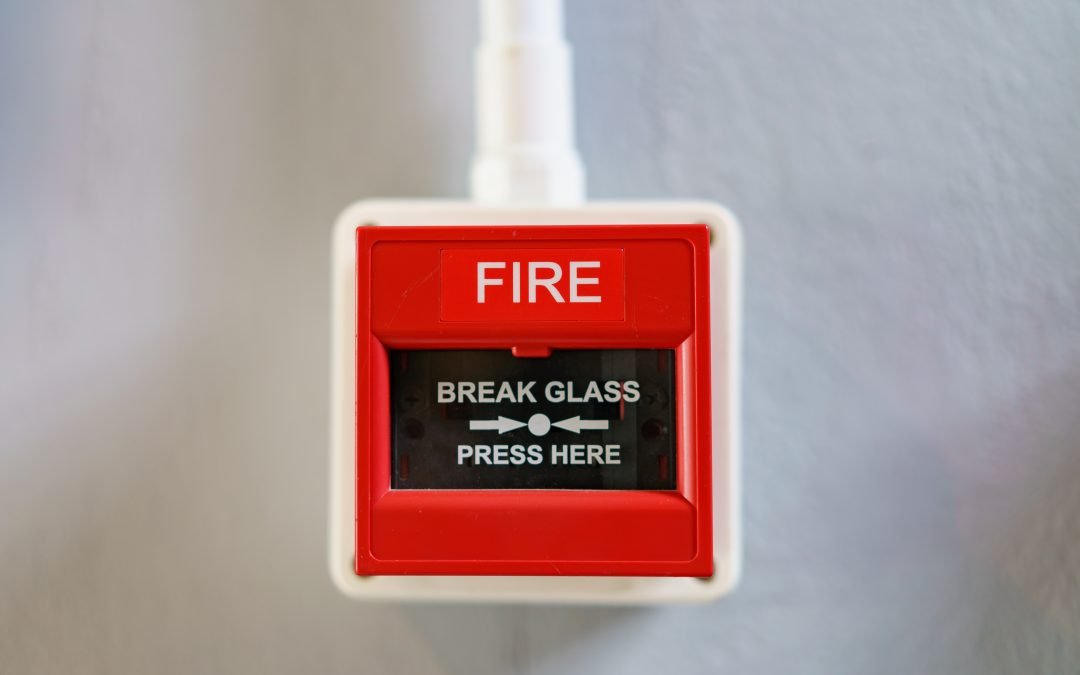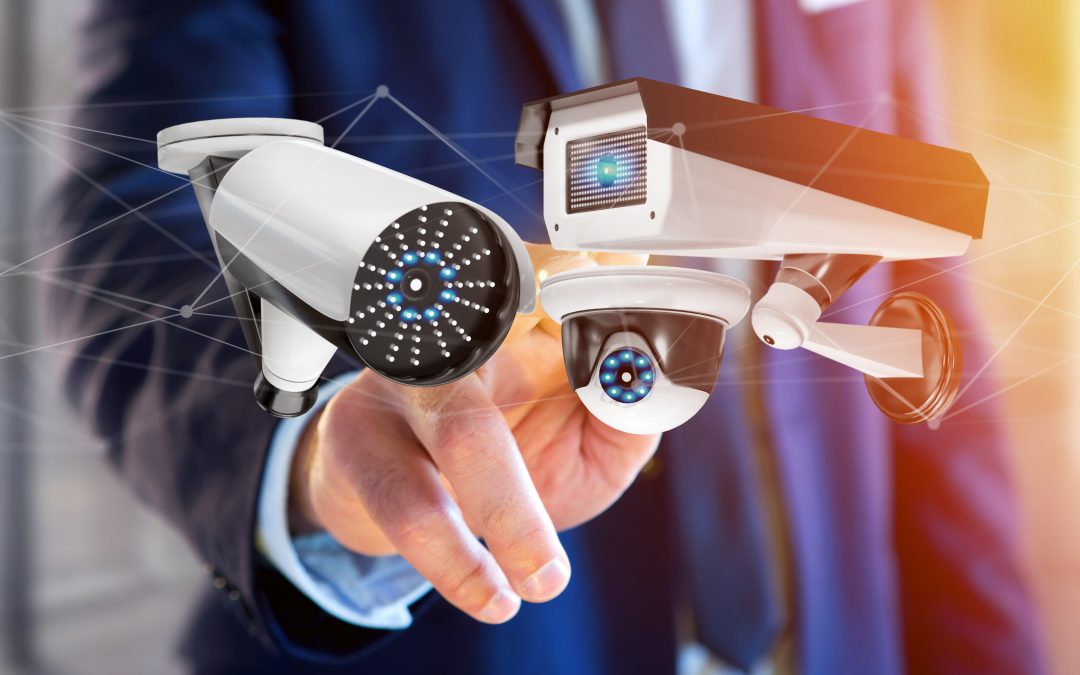Whether you own a commercial or residential property in Southern Florida, by law you are required to have a fire alarm system. While nearly everyone has a fire alarm system in their home, not everyone understands how they function or why they are really necessary in the first place. While fire alarm systems have been around for quite some time they have developed over the years.
Let’s talk about how these fire alarm systems can benefit a commercial residential property, how they should work, and how you can have them installed the right way so they function as they should.
What is a Fire Alarm System?
Fire alarm systems may just be the most important part of any security system in a household or business. They are important because they respond to threatening situations with fire to alert anyone inside the property if there is danger.
They work if smoke, fire, or carbon monoxide is detected even in the slightest. It will either be done through an ionization fire alarm system or a photoelectric fire alarm system. While they both work great they have slightly different methods of detection. Sometimes they might even be installed in combination throughout a property to cross out the other disadvantages.
Benefits of a Fire Alarm System in Miami
While safety is the obvious first choice when it comes to what types of benefits you will get with a good fire alarm system, other things like ensuring a good response from your fire department and protecting those around you are also high up there in benefit.
There are a lot of benefits when it comes to having a fire alarm system in Miami. They mainly revolve around safety. Making sure that you get the appropriate help you need at the right time is the biggest priority.
Let’s talk about these three benefits revolving around security and safety:
- Having quick detection
- Getting a quick response from authorities
- Alerting those nearby to keep them safe
Early Detection
The most important thing is to detect the smoke, fire, or carbon monoxide as quickly as possible so that you can get a quick response from authorities and those nearby. This will help cause the least amount of damage to property but more importantly the people. This is the first step and when a system detects these things right away it makes a huge impact.
In general, ionization tends to have a quicker response over photoelectric fire alarms at what is considered the gleaming stage of a fire. But photoelectric tends to do better in terms of picking up the smoke particles early on.
Fast Response
Now we have a quick response. So when detection occurs the system needs to have a quick response that can trigger fire units and any emergency officials so they know to get to the scene quickly to help. This gives them more time to plan and assess the situation to best handle what’s going on.
Stop Injury or Illness
Because of the two listed above the third one comes into play and is impacted. If the first two work correctly then the fire alarm system can help stop injury or illness from anyone who is nearby or inside. It doesn’t matter whether this is a residential property or a commercial property the benefits work the same to keep everyone safe. This is why it is the law to have one.
Components of a Fire Alarm System

There are essentially five main components of a fire alarm system in order for it to work correctly. Let’s go over each one and its role to really understand why it’s crucial.
Fire Alarm Initiating Device
This is how the fire alarm system activates one’s detection is noticed. It can be done manually by someone pulling the alarm or it can be done automatically by smoke or something triggering the system.
Fire Notification Devices
We talked about the importance of alerting people which is why this is the fire notification device. These are alarms, bells, sirens, flashing lights, and other ways to let someone know they need to evacuate.
Fire Alarm Control Panel
This is the brain or the main hub of the system that makes sure every other part is doing its job. It sends signals back and forth to other parts so that the notification center goes off properly when it needs to.
Primary Power Supply
This is going to be your wired part of the system so that it ensures it is ready to go at all times.
Backup Power Supply
This is your battery so that if the power goes out then you have a backup plan so that it works in all scenarios.
States of A Fire Alarm System
There are three different types of states that a fire alarm can be in. These signal essentially how the fire alarm system is functioning so that you know whether it is working correctly or not.
Normal
Normal means that there is no danger present and the system is functioning correctly. This is how your fire alarm system should be if there is no danger present and it is just monitoring the situation correctly.
Alarm
An alarm is when the device is activated because there is danger present. This is where your notification system will kick into gear because detection occurred. This is still a sign that your fire alarm system is working correctly as long as there really is smoke, fire, or carbon monoxide really is detected.
Trouble
Trouble indicates that something is actually wrong with the fire alarm system. This could be a wiring issue or the batteries may be low. The control panel will be able to tell you what zone the problem is in so that a mechanic or electrician can help you sort out the problem and get it fixed.
In a home property, this is where you hear the chirping sound to indicate something is wrong with your fire detectors.
Types of Fire Alarm Systems
Now that we understand the different components that make up a fire alarm system and the benefits that they provide, let’s get more specific into what types there are and how they work. This will give you a better idea of what the main differences are between ionization and photoelectric.
These are the different kinds to consider!
Ionization
Ionization fire alarms respond quicker to actual flames than they do smoke. This is due to the radioactive chemicals inside of the system that ends up crossing paths and therefore triggering the alarm on the inside.
Photoelectric
Photoelectric like we mentioned respond differently because they respond more to smoldering flames or smokey fires. This is because they use light to detect when a fire or smoke is present and these particles end up blocking the light and setting off the trigger.
Combination
Combination more refers to using both types of systems throughout the building to cover more odds of detecting a fire. It is not the same thing as one unit acting both as a photoelectric and ionization fire alarm system.
Wired
Wired is the first component we mentioned under the components section because it allows for the best accuracy. Wired ensures that you don’t have to worry about the batteries dying and the whole thing doesn’t work. When the power goes out you need a backup.
Non-Wired
Non-wired covers the problem that if the power goes out then you need to have a backup option. However, it is slightly less reliable than a wired system and you will need to change the batteries to ensure that the system stays up and running.
Which Type of Alarm System is Best?
Taking into account what the National Fire Protection Association requires, then you need a few different smoke alarms or a quality fire alarm system to be installed in your buildings or buildings. Commercial properties however are going to have more codes and regulations to follow than residential.
So, how do you know what system is best if you need to have one installed in your residential property or commercial property? Both work great so there is no real clear winner. Photoelectric tend to be slightly more popular but having an ionization also does just fine.
Fire Alarm Systems FAQs
Having a full understanding of a fire alarm system is always great to have but it’s super normal to have some questions or concerns when learning about them for the first time. This section addresses the most frequently asked questions regarding fire alarm systems.
Can I fix my own fire alarm if there is a maintenance issue?
Some issues like changing the battery or even debris inside of the device can be fixed by the homeowners or business owners. But fire alarm systems can be tricky so it never hurts to have a mechanic or electrician cover your bases. In most scenarios when the fire alarms start chirping, owners find it difficult to fix so even calling your local fire station can help solve the issue.
Do we need an expansive fire alarm?
Not necessarily. Most fire alarm systems aren’t incredibly expensive however that doesn’t mean ordering just any to save on costs. You want to make sure that the brand you are working with is quality and reliable to ensure that you are safely protected at all times.
How much maintenance are fire alarms?
There isn’t much maintenance when it comes to fire alarms but you should clean it to avoid collecting dust. That way you don’t have any false alarms being triggered. You also need to change out the backup batteries or regular batteries to ensure that it functions at all times.
Here at Helios, it is the number one priority to emphasize getting out customers the best quality equipment especially when it comes to fire alarm systems. But we also want to help out with the installation process because that’s where it can all go wrong. Without the right installation, the people you care most about are at risk. So from the first step to the last step, we plan on being there for everyone one of them!
Safety is the Priority
When it comes to fire alarms and your system safety is the absolute priority. It’s awesome to understand the components, types, and what different states there are but you can also kick back and relax. That’s because a trusted security provider or fire station can help you with the installation and set up and after that, there is not much maintenance to stress about.
The important part is investing in one that is going to be a reliable option for you. At Helios, we can help offer up some great options! It doesn’t matter whether you want photoelectric or ionization, we got something for you!




